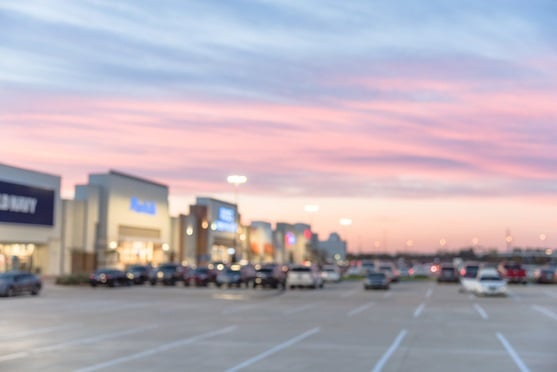As mall stores have closed during the COVID-19 outbreak, some landlords have found a new, surprising source of revenue—shopping center parking lots.
CNBC reported that Brookfield Properties inked a deal with Kilburn Live to turn some of its mall parking lots into drive-in theaters that could host movies and virtual concerts.
With conventional theaters and concert venues closed and consumers eager to leave their house for entertainment, activating parking lots would seem like the right way for mall landlords to recoup lost income.
Mason Asset Management, which buys distressed malls in partnership with Namdar Realty Group, is open to exploring turning its parking lots into movie theaters or concert venues, according to Elliot Nassim, president of the company.
“We have an entire specialty leasing team now just focused on the parking lot and the ancillary income,” Nassim says. “If you have good real estate, you have the potential to do so much with it, and we are excited to have new, non-traditional opportunities to continue adding value to our properties.”
Nassim does emphasize that it sees its parking lots as more than just an opportunity to generate more revenue during the pandemic. The company has allowed local governments and health officials to use its parking lots as COVID-19 test centers.
“During the pandemic, Mason Asset Management has remained committed to providing to the communities we serve in,” Nassim says.
In California, a local high school hosted a graduation parade in the Sunrise Mall parking lot after COVID-19 forced the cancellation of the original event.
“When we were presented with the idea of hosting a graduation in the parking lot of Sunrise Mall, we knew it was a great idea to help heighten the spirits of local students who are unable to have a graduation during these unprecedented times,” Nassim says.
Mason’s business model has always been rooted in bringing value to its malls through “out-of-the-box thinking that considers the local fabric of the communities” within which it operates, according to Nassim.
“One idea we’d love to explore in further detail is the use of vacant real estate or, weather permitting, our outdoor spaces for educational purposes,” Nassim says. “We know that schools are facing an uphill battle this fall, and we’d like to find opportunities to better utilize our real estate footprint to support that.”
Mason also allowed small businesses to use its parking lots.
“We have also opened our parking lots to local businesses and food truck vendors to take advantage of traffic coming in for curbside pick-up services that some retailers chose to participate in,” Nassim says.
Despite problems in retail, Nassim believes that malls will continue to serve as a destination in their communities and evolve into lifestyle centers to meet new consumer demands.
Nassim says supporting the local community broadens the demographic of those who would take a weekend trip to the mall, makes malls more adaptable, diversifies job opportunities in the area and creates possibilities for the communities that surround these properties.
“We’re committed to the long-term success of our properties — we invest in the future of our assets,” Nassim says. “Our investment can take on many different forms, whether it is finding new and different tenants or larger redevelopment strategies, but our goal is always to make the destination more valuable on all fronts.”
